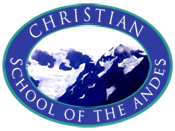Andean Morning
The mountains were long before men came and will be long after men are gone.
In the morning mists a cold sun rises on the Andes. A shepherd’s quena – flute wafts out doleful tunes across the valley. Barefoot farmers plow terraced tracts as their fathers have done for centuries. By the river silent stones are all that remain of an ancient city that once thrived here four thousand years ago. Unknown to the Old World, the world of the Andes was already old when Babylon began. Here kingdoms rose and fell like rivers swollen in the flood and gone in the drought. Their names meet the fate of all the great, forgotten into oblivion. Here were the Wari in the south, the Chimu in the north, the jaguar-faced oracle of Chavin in the center. Here by the great lake were the mysterious stone cities of Tiahuanacu, on the coast the cruel and grotesque Mochicas, the sea-faring Chincha- givers of the trade-language Quechua, the enigmatic Nazcas and their desert lines. Here religions, cities, customs, ceremonies and symbols persisted across the millennium. Here was an entire universe of meaning. Last and greatest were the Incas; conquerors of every kingdom in the Andes. Superb if severe administrators, the Incas incorporated the skills, symbolism and entire existence of their subjects into a single authoritarian state. Theirs was the culmination of the whole Andean civilization. Cuzco, the capital city was “the naval of the universe,” the political, social and religious center of mankind. …until the aliens came. The universe collapsed in 1532. Spanish guns and Spanish germs shattered the Inca Empire. With no natural resistance to European diseases, tens of millions died in a few short years. Inca leaders were executed, their population was decimated, the survivors were subjugated. The “Indians” were forced to work in mines and fields for new masters whose bizarre ways were incomprehensible. Andean cosmology was turned upside down and inside out. The great “Cuzco” became nothing more than a provincial backwater of another empire. Spain was an empire based on the other side of a world they never knew existed, a world they could not understand. The survivors retreat into themselves and into their past. Yet the past no longer exists. All that remains are shards and pieces. Yesterday no longer provides a coherent body of meaning to interpret their experiences today. Their past is both incomprehensible and yet inescapable. Of course, they “adapted” as human beings inevitably will, but not well. To this day the people of Peru have never quite recovered from the Spanish Conquest. While the rest of the world speeds along in the 21st century, millions of Peruvians live stranded in time. They plow their fields with oxen, live in mud houses with dirt floors, have no running water or electricity and barely survive as sustenance farmers. It is not that they do not want to be a part of progress. They have known for centuries now that this other world exits, but it has always been a world barred to them. Centuries of subjugation are not easily erased from a society. In temperament many Andean people are characterized by an intense sobriety born of hard labor and a deep melancholy born of much grief. Yawar- the Quechua word for “blood” figures heavy in life and language here. Death and bloodshed are always near. Even today everyone has lost someone to accident, sickness, war or murder. The sadness is almost palpable. And yet theirs is also a certain dignity of soul. You see it in the regal way men and women carry themselves. They are peasants who still walk with a dignified air of nobility, the last vestiges of a once proud people, crushed down by griefs but still standing. A sense of apocalyptic mystery hangs over these people and their place. A few decades ago, Protestant missionaries came here preaching the immanent end of the world. The message struck a chord with the hearers. After all, they had been trying to deal with the end of their world for the past four centuries. Hence this novel Evangelical Protestantism has grown wildly among among the staunchly traditionalist Catholic-pagans of the highlands. This new-found faith, chosen- not imposed, seems to make sense of an otherwise senseless world. And in a world drenched in blood, this faith points to One whose blood brings an end to the old world and promises to bring forth the new. This is indeed good news to the people of the Andes.
Night falls on the Andes. The wind blows lightly through the eucalyptus trees. A soft light glows in the little adobe church building. Women with long shawls and men in ponchos stream into the building with children by the dozens. Rhythmic singing fills the air. The congregation worship in sincere fervor. They are chanting a song in Quechua. They sing of the city of Babylon destined for judgment and fire. They sing of the New Jerusalem with streets of gold and a crystal sea. They sing of the blood of the Lamb of God. They sing of hope.
Over it all, the old mountains watch quietly in the moonlight as they have for eons.
